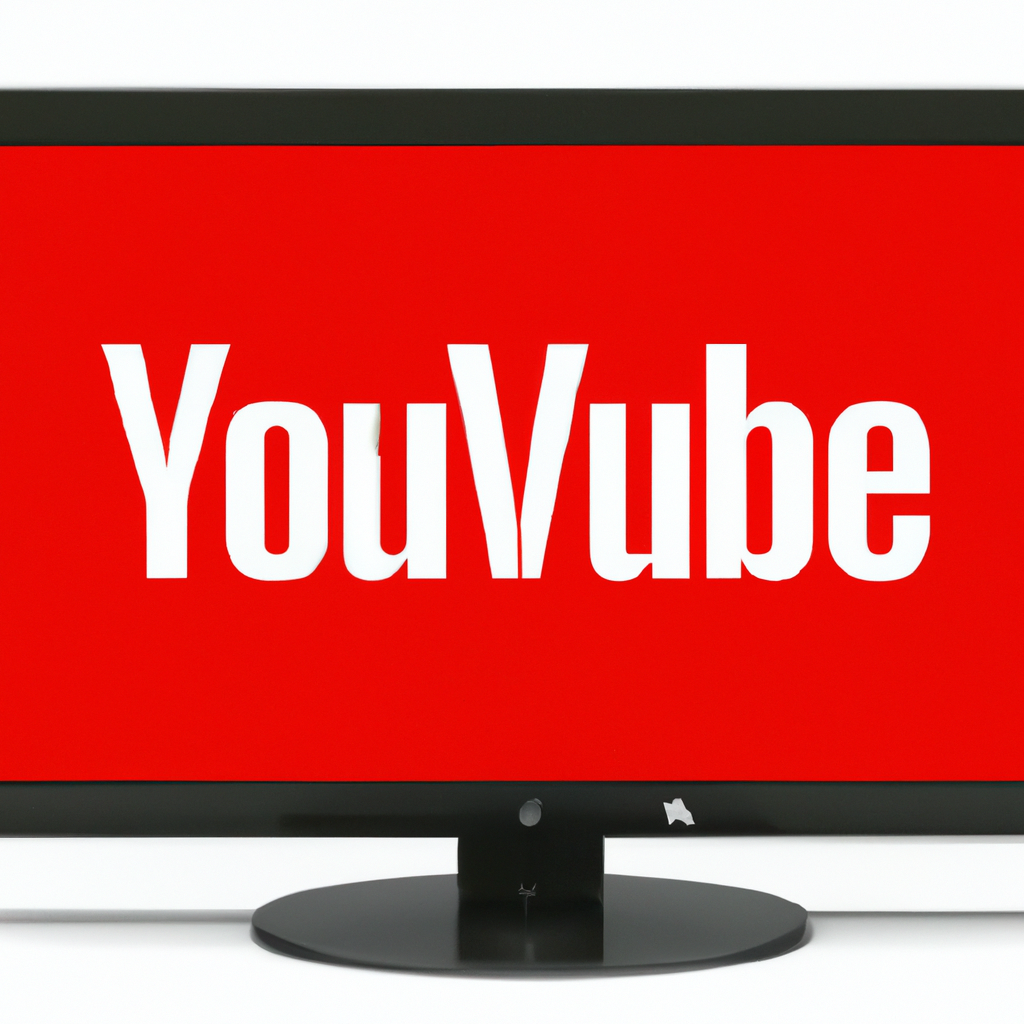In the sea of digital marketing, you might find yourself intrigued about YouTube ads as an effective method for your brand exposure. “How Are YouTube Ads Charged?” is a piece that explores the edifice of YouTube’s advertising platform. It seeks to unravel the costing mechanisms and factors that impact how much you pay for your ads. Prepare to navigate through the inner workings of YouTube’s unique advertising ecosystem and understand how to make most of your investment. So, buckle up and get ready for a fascinating adventure into the world of YouTube Ads.

Understanding YouTube Advertising
Marketing in today’s fast-paced digital age means staying ahead of the curve, and a big part of that is understanding the power of online advertising platforms like YouTube.
Definition of YouTube ads
YouTube ads are a form of video advertising that lets you promote your products, services, or content directly on the YouTube platform. These advertisements can come in different formats and will be shown to users before, during, or after YouTube videos depending on the type of ad used.
Importance of advertising on YouTube
YouTube is the second-largest search engine in the world, boasting over 2 billion active users. This vast audience base makes YouTube one of the best platforms to raise brand awareness, increase traffic to your website, and drive sales. Moreover, YouTube’s advanced targeting options allow you to reach the right audience at the right time, thereby maximizing the effectiveness of your ad campaign.
Different types of YouTube ads
YouTube offers several different types of ads to help you reach your marketing objectives. This includes display ads, overlay ads, skippable and non-skippable video ads, bumper ads, and sponsored cards. Each ad type has its unique features and benefits, and it’s important to choose the ad type that aligns with your campaign objectives.
YouTube Ads Pricing Structure
Understanding The cost of YouTube ads can help you make an informed decision about your advertising budget and strategy.
Introduction to YouTube ads cost
The cost of YouTube ads is primarily based on a bidding system, where you decide how much you are willing to pay for your ad to be shown. This means you have full control over your advertising budget, which can be as low or as high as you can afford.
Factors determining the cost of YouTube ads
Several factors determine the cost of YouTube ads. This includes your bidding strategy, the popularity of the keywords you’re targeting, the location of your target audience, and ad quality. Remember, a higher bid doesn’t always guarantee better ad placements; the quality of your ad also matters. We’ll touch on excellent ways to produce high-quality ads and manage your budget effectively in later sections.
Average cost of YouTube ads
The average cost of YouTube ads varies greatly, depending on the factors mentioned above. For instance, cost per view (CPV) can range from $0.01 to $0.30, while cost per click (CPC) can range from $0.10 to $0.30.
Payment Methods for YouTube Ads
To streamline advertising transactions, YouTube provides flexible payment methods.
Automatic payments
In automatic payments, you’ll be charged after your ads run. You can set a payment threshold, and once it’s reached, your set payment method will be charged.
Manual payments
This method allows you to prepay your account balance. Then, as your ads run, the cost is deducted from this balance.
Monthly invoicing
Monthly invoicing is a payment setting where you receive a monthly invoice for the costs you’ve accrued over the last 30 days. It’s important to note that this form of payment method requires a credit assessment.
Payment profiles
A payment profile helps manage your payment method, including your billing information. You can also choose to set up multiple payment profiles, allowing you to manage different ad accounts or running campaigns in different currencies.
YouTube Cost-per-Click (CPC)
The CPC model can help you decide how much to pay for each viewer’s engagement with your ads.
Definition of CPC
CPC, or cost-per-click, is an advertising model where you pay each time a viewer clicks your ad.
How CPC works on YouTube
In a CPC model, you set the maximum amount you’re willing to pay for a click. Your bid along with the quality score of your ad (an algorithmic assessment based on ad relevance and landing page experience) determines where your ad will be shown.
Average CPC on YouTube
The average CPC on YouTube varies, but you can expect to pay around $0.10 to $0.30 per click. Keep in mind, however, that this depends largely on factors such as your industry, competition and the specific keywords you’re targeting.

YouTube Cost-per-View (CPV)
The CPV model is another critical pricing structure in YouTube advertising.
Definition of CPV
CPV, or cost-per-view, is an advertising model where you pay when a viewer interacts with your ad or watches at least 30 seconds of your ad (or the entire ad, if it’s shorter than 30 seconds).
How CPV works on YouTube
In a CPV model, you set a maximum CPV bid (the highest amount you’re willing to pay for a view). Similar to the CPC model, this bid combined with the quality score of your ad determines where and when your ad will be shown.
Average CPV on YouTube
The average CPV on YouTube can range anywhere from $0.01 to $0.30. However, keep in mind that CPV can also fluctuate based on factors such as the time of year, your targeted demographics, and competition for ad placement.
YouTube Cost-per-Mille (CPM)
The CPM advertising model allows you to pay per 1,000 views of your ad.
Definition of CPM
CPM, or cost-per-thousand views, is an advertising model where you pay for every 1,000 times your ad is shown, regardless of whether or not it’s clicked or watched completely.
How CPM works on YouTube
Unlike CPC and CPV, CPM focuses on impressions rather than interactions. This works best for campaigns aiming to increase brand exposure and awareness.
Average CPM on YouTube
CPM on YouTube can generally range from $0.25 to $4.00, but the cost can dramatically increase for highly competitive industries or periods.

Bidding Strategies for YouTube Ads
Choosing the right bidding strategy can greatly influence the effectiveness and cost-efficiency of your YouTube ads.
Maximize conversions
This strategy automatically sets bids to help get the most conversions for your campaign while spending your budget. It’s best used when your goal is to drive actions on your site.
Target CPA
As the name suggests, target cost-per-action (CPA) is an automated bid strategy where you set a target CPA and Google adjusts your bids to provide as many conversions as possible at your target cost.
Target ROAS
Target return-on-ad-spend (ROAS) helps you get more conversion value or revenue at the target return-on-ad-spend you set. This strategy is perfect if you value each conversion differently.
Maximize clicks
Maximize clicks is an automatic bid strategy where Google adjusts your bids to get as many clicks as possible within your budget. This works best for businesses looking to drive traffic to their landing pages.
How Geographical Location Affects YouTube Ad Costs
Like any advertising platform, geographic location plays a significant role in YouTube ad costs.
Cost of ads in different regions
The cost of ads can vary significantly depending on the region you’re targeting. For instance, targeting audiences in countries like the USA, Canada, UK, and Australia tends to be more expensive compared to other countries due to the high advertiser demand in these regions.
Impact of target audience location
The location of your target audience influences your ad cost as it affects competition, audience quality, and conversion rates. Hence, understanding who your audience is and where they are can help optimize your ad expenditure.
Tips to manage costs across various locations
To manage costs across different locations, consider lowering bids for regions where ads perform poorly. You could also increase bids for high-performing areas to maximize return. Also, experimenting with less saturated markets could deliver surprising results at lower costs.

Impact of Audience Targeting on YouTube Ad Costs
Tailoring your YouTube ads to specific audience groups can greatly influence the cost and effectiveness of your ad campaigns.
Demographic targeting
Demographic targeting allows you to reach viewers based on factors like age, gender, marital status, and more. Understanding the demographics of your ideal consumer can help optimize your ad spend.
Interest-based targeting
Interest-based targeting helps reach users based on their interests, habits, and the types of videos they watch. This tactic can help you reach a highly engaged audience, thus increasing the chances of conversions.
Remarketing targeting
Remarketing allows you to target viewers who’ve interacted with your videos or YouTube channel in the past—these could be people who’ve watched your videos, liked, commented, or shared your videos.
Keyword targeting
Finally, keyword targeting allows you to show your ads to users based on the keywords they use to search for videos on YouTube. This can help you reach out to an audience that’s already interested in what you have to offer.
Ways to Lower YouTube Ad Costs
Effective strategies can help you reduce your YouTube advertising costs without compromising the efficacy of your ads.
Choosing the right bidding strategy
Selecting the right bidding strategy that aligns with your campaign goals can help optimize your ad spend. Experiment with different models – CPC, CPV or CPM – and see what drives the best results at the lowest cost.
Improving ad quality
Ads with high-quality content will not only attract more views and leads but also have a better chance of winning ad auctions at lower costs. Prioritize excellent video production and compelling storytelling techniques to capture your audience’s attention.
Focused audience targeting
By understanding your audience and tailoring your ads according to their interests, demographics, or behavior, you can reduce wastage and make your advertising more cost-effective.
Effective use of keywords and SEO
Leveraging relevant keywords and optimizing your SEO can keep your ad content relevant and increase visibility, thereby reducing your overall ad costs.
With the above strategies in place, you’ll be better equipped to harness the power and potential of YouTube ads, drive engagement, increase your brand visibility, and ultimately, get the most value from your ad spend.






